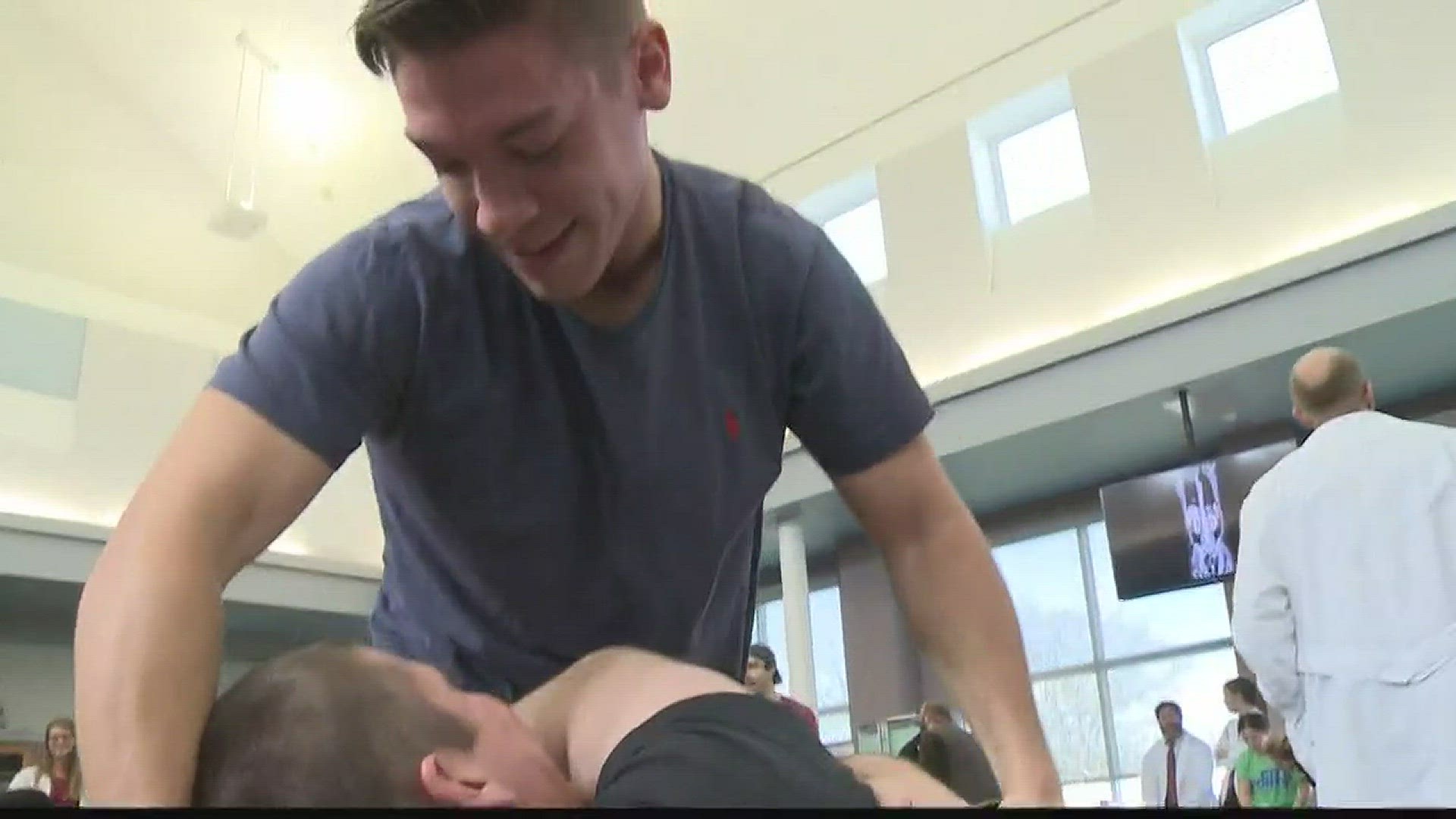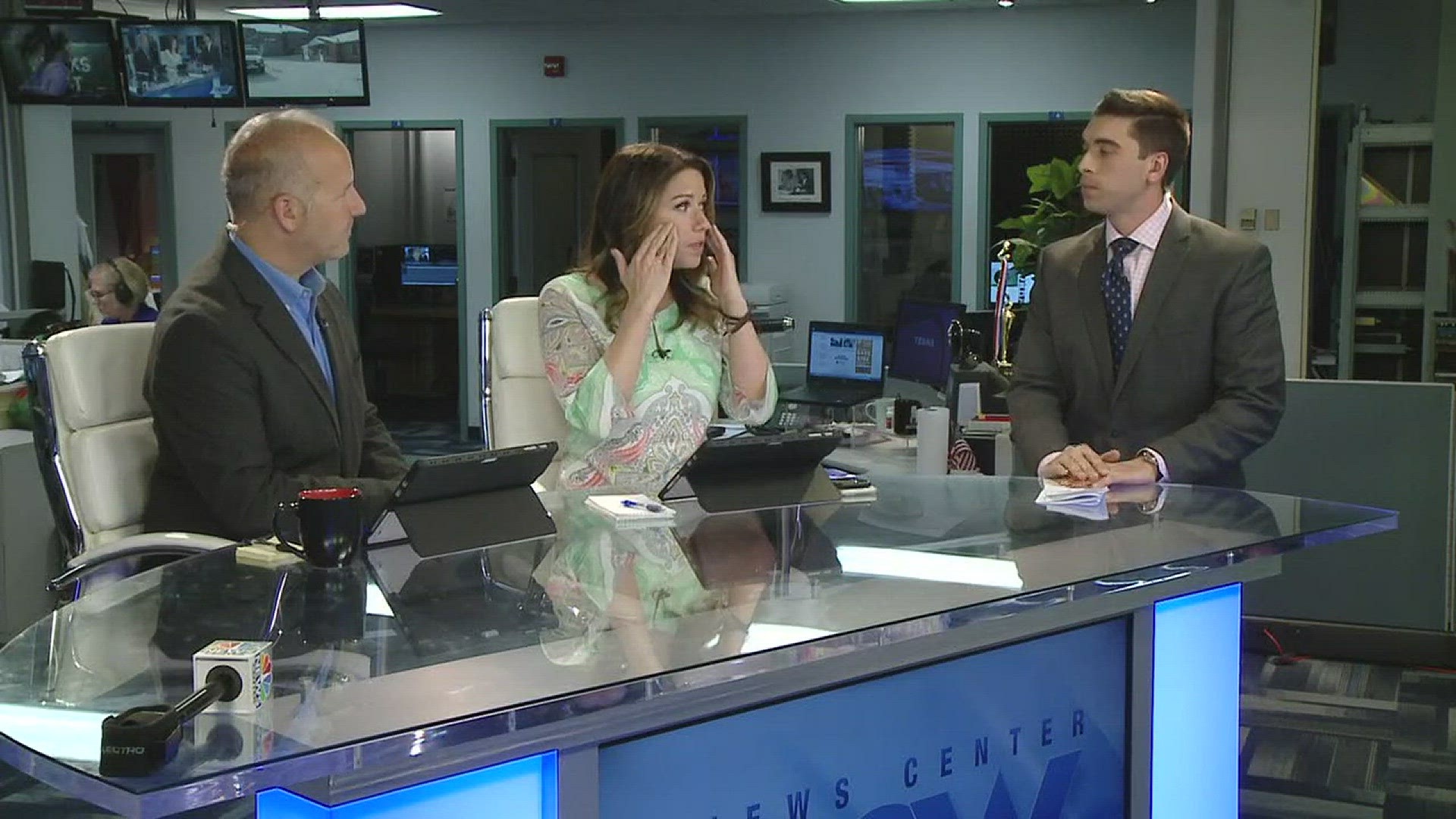BIDDEFORD, Maine (NEWS CENTER) --
Students at the University of New England College of Osteopathic Medicine are practicing a technique called neuromuscular skeletal intervention, which a recent study found could help reduce a patient's opioid use.
The study, published in the Journal of the American Medical Association, found that spinal manipulative therapy was associated with significant benefits in both pain and function in a person's lower back.
Patients reported a 10 percent decrease in pain: using a zero to 10 scale, patients usually reported about a drop of one "point," for example, from a 6 to a 5.
"Ten percent improvement can be really significant in somebody's life," said Jane Carreiro, D.O., dean of the College of Osteopathic Medicine. "The pain level decreases enough where they can now go and participate in things that are going to recondition them and help them to feel better, such as exercise, going back to work, bending over to pick up their child."
For those suffering with chronic pain, the therapy can be an alternative to addictive opioids.
The technique uses a patient's body weight, combined with the physician using their hands, arms, and body to help retrain a person's muscles. The therapy essentially "resets" the muscles, according to Carreiro.
Med students at UNE are practicing the technique, called osteopathic manipulative therapy (OMT) including first-year student Haley Pelletier.
"We get a lot of OMT for free just from being here, and I'll feel the next day and I'll feel a lot better," said Pelletier. "It actually works. It's not just some hokey thing."
MORE: Chris Costa undergoes simple spinal manipulation (mobile users click here)
Next to the lab, there is a free clinic where the general public can make an appointment for an OMM session with a student, supervised by a physician. Robert Spulick goes there to help relieve the pain in his back and shoulders.
"It relieves so much of it that it's so relaxing and when you leave here you're kind of ready to take a nap," said Spulick.
"Most of the people that we tend to see don't want to be on pain meds because of the side effects," said Carreiro. "We need to look for other alternatives to pharmaceuticals, to medication, and manipulation is one of those things. I think it's a tool that more people should take advantage of -- not just patients, but physicians."
Pelletier said students perform these treatments on each other in order to study and to get more experience for when they treat a true patient.
"I think having patients feel comfortable around you and let their guard down just from the way that you're interacting with them is super important, and you get more out of people when they feel safe with you and a lot of that comes with knowing how to touch them," said Pelletier.


